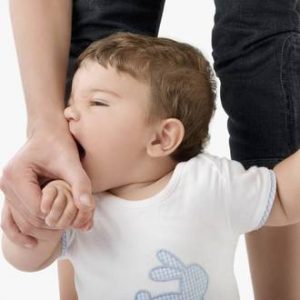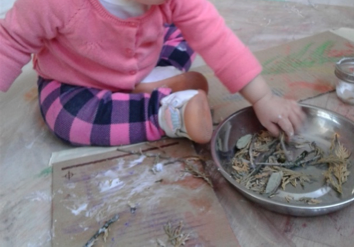 Biting is a typical behaviour often seen in infants, toddlers and of course, our 2-years olds. A biting child in the IT program, while not unusual, can not only upset other children with their behaviour, but also cause parents to worry, both about their child and the other children. Biting can be painful and frightening when it happens so it’s important to understand why it happens and what we can do to possibly prevent it.
Biting is a typical behaviour often seen in infants, toddlers and of course, our 2-years olds. A biting child in the IT program, while not unusual, can not only upset other children with their behaviour, but also cause parents to worry, both about their child and the other children. Biting can be painful and frightening when it happens so it’s important to understand why it happens and what we can do to possibly prevent it.
Why does a child bite?
- Relieve pain from teething.
- Explore cause and effect (“What happens when I bite?”).
- Experience the sensation of biting.
- Satisfy a need for oral-motor stimulation.
- Imitate other children.
- Feel strong and in control.
- Get attention.
- Act in self-defense.
- Communicate needs and desires, such as hunger or fatigue.
- Communicate or express difficult feelings, such as frustration, anger, confusion, or fear. For a more extensive list please visit this site
What to do after a child’s bite?
As an experienced IT teacher, I have encountered this scenario a lot, and understand that it is often just a way that the child has found of communicating. I always aim to prevent the behaviour from happening in the first place, however, once a bite has occurred here are some strategies my coworkers and I use:
- I would go down to the biting child’s level and talk to her/him in a firm voice: “No biting, biting hurts our friends.” – This is a short message to the child that explains what they did wrong (the biting) and why that is not an appropriate behaviour (it hurts the other children).
- Then I turn to the bitten child: “[Child name] bit you, I know it hurts. Ice can make you feel better.” I would quickly apply an ice pack on the affected body part.
- Finally, I would come back to the child who bite and explain: “Look, you bit [child’s name] she is sad. Please give her a hug or say sorry to help her feel better.” -if the child had bite because they were trying to communicate something (like not wanting to share a toy, or not liking something) then I would also provide a short sentence that the child could use to express her/himself instead of resorting to biting.
Both parents would also be contacted, and we would let them know what happened.
It can be hard for a parent to accept the fact that their child bites, but please know that we understand this is a phase that many children go through. It might be helpful to find out why your child bites and find a way to help them through it. You can also do some research on what might be causing it, consult your family doctor and chat with us teachers, we are happy to provide as much insight as we can into this matter. Above all, please be patient with your child and continuing smiling to your loved one!



